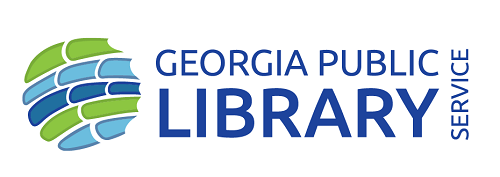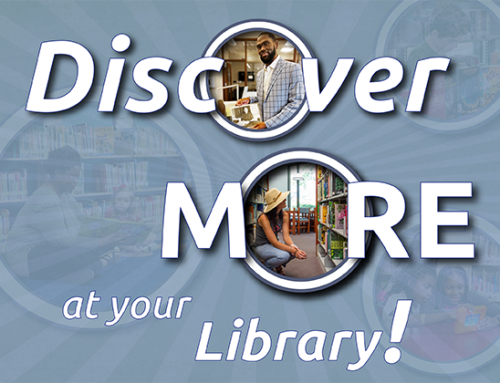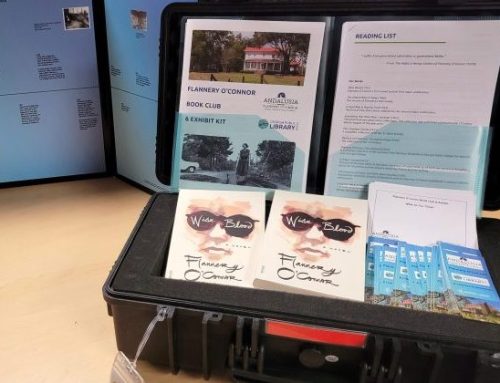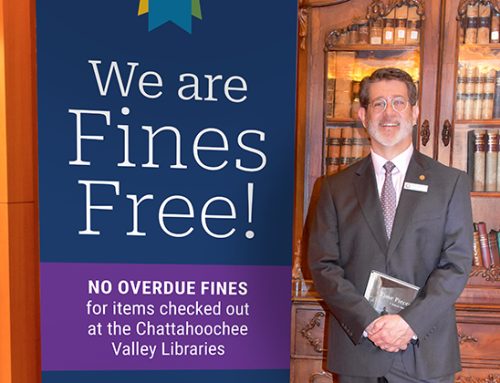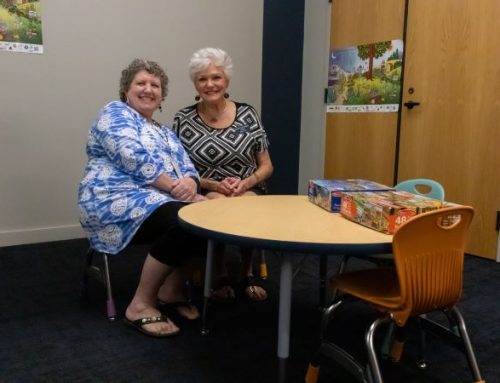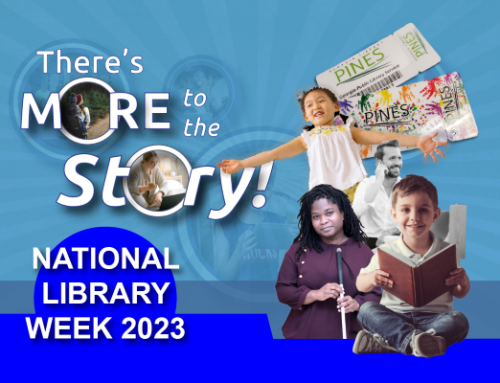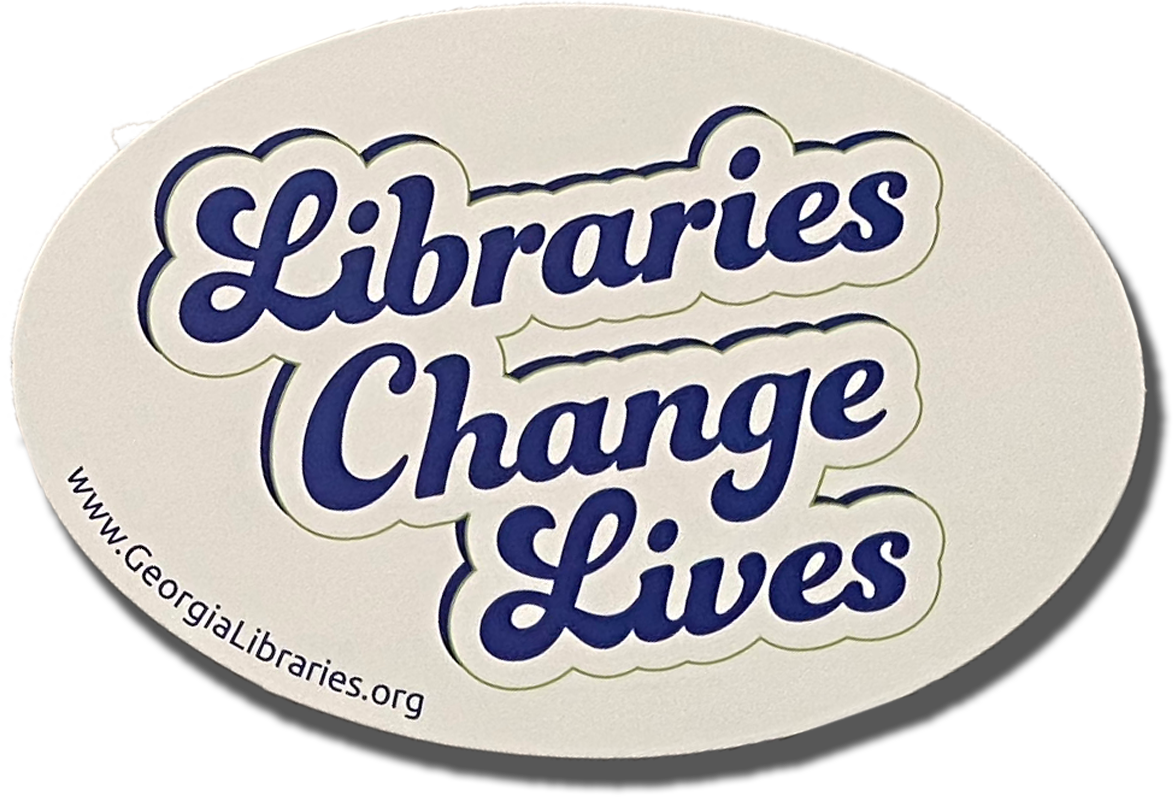As baby boomers experience declining physical, hearing and vision capabilities, public libraries can be a source of accessible programming and technology to encourage independence. In partnership with Georgia Libraries for Accessible Statewide Services, Georgia public libraries also promote circulation of materials in audio, braille and large-print formats.
“I challenge myself every day.”
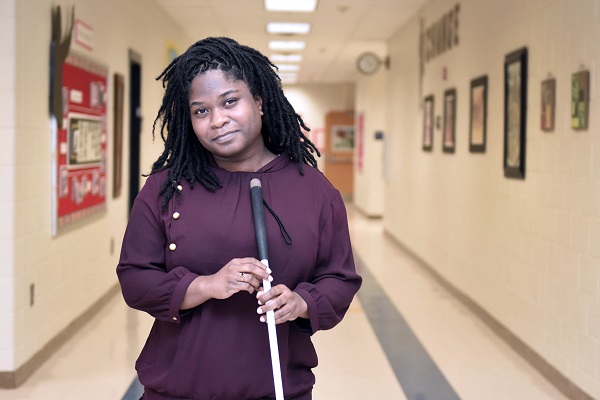 Two years into her studies at Georgia State University (GSU) to become an elementary school teacher, life handed Miracle Wiley, now 29, a challenge she wasn’t sure how to overcome. She lost her vision permanently.
Two years into her studies at Georgia State University (GSU) to become an elementary school teacher, life handed Miracle Wiley, now 29, a challenge she wasn’t sure how to overcome. She lost her vision permanently.
“I dropped out of school,” said Miracle. “I never met any blind teachers growing up; I didn’t think it would be possible to pursue this dream.”
A friend recommended that she sign up to receive audiobooks through Georgia Libraries for Accessible Library Services (GLASS) so she could continue to read for enjoyment and to keep her spirits up. There were moments of tears and frustration, but eventually through GLASS’s network, Miracle met others who were blind and still pursuing their goals. She also connected with teachers who were blind.
“I was determined to go back to school,” she said. “I wanted to show my students that they don’t have to fit into the ‘normal’ category to reach their goals.”
She returned to school and completed her degree. Utilizing GLASS, she could download audio books of assigned reading and keep up with fellow students. Now that she teaches elementary school, she uses the audiobooks in her classroom with students.
“GLASS has helped me in my career,” said Miracle. “I can read along with my students and introduce them to different types of books.”
GLASS works with all library systems to give Georgians materials from the free national library program administered by the Library of Congress and the National Library Service for the Blind & Physically Handicapped. GLASS also provides eligible readers with access to Bookshare, a collection of over 650,000 electronic titles including textbooks.
“When you lose your vision, you lose the ability to do many of the activities you enjoy. GLASS services enable people to reconnect to parts of their lives that gave them joy, such as reading or catching up on the news, as well as the opportunity to learn about other services,” said Pat Herndon, director of GLASS.
Reading materials and services for personal enrichment, education and entertainment — as well as any needed audio equipment — are sent to borrowers and returned by postage-free mail. Library users can search the online GLASS catalog for braille, recorded books and descriptive videos and place their requests. Reader advisers are available to help patrons in person or by toll-free phone.
In addition to circulating materials, GLASS hosts programs on a variety of topics, including over the phone book clubs for those who cannot travel to a local library.
“I hope my story teaches people not to let life experiences deter them from pursuing their goals,” said Miracle. “There are people who are blind and teaching and so much more. I am so thankful for those who took the time to help me reach my goals. I challenge myself every day to do more.”
Assistive technology is about all of us.
For Judy Belcher, the hardest part of temporarily losing her vision due to macular degeneration was how quickly it happened.
“When you are used to having your vision and then you lose it, it is so humbling,” Belcher said. She utilized Fayette County Public Library’s assistive technology to continue reading books in large print and then audio format, and she maintained her position as treasurer for the Friends of Library group by using the library’s magnifiers, contrast keyboard and other equipment. Now that her vision has returned, she is a strong advocate in her community to raise awareness of the library’s resources.
“People often have the attitude that accessibility is about someone else,” said Pat Herndon. “It’s about people whose life has changed, and being sure that libraries have the resources to better serve everyone in their community. It’s not an ‘other’ – it’s about all of us.”
Assistive technology is one channel that provides equal access to library resources, as libraries have evolved from gatekeepers to the portals by which people access information.
In some cases, it’s as simple as patrons using a library’s magnifier to read the instructions on a pill bottle. Every public library in Georgia has a larger-font and contrast keyboard, so people with low vision can use a computer more easily.
Your local library may have additional accessible equipment, for example Gwinnett Public Library has an Assistive Technology Lab featuring adjustable height tables; JAWS software; a Prodigi reader that allows a customer to select reading with magnification or listening; an Intel Reader that converts printed text to digital text, then reads it aloud; high contrast keyboards; and a braille reader.
“Accessible technology in libraries give privacy and independence to those who need it,” said Pat Herndon. “It removes barriers and gives people the tools to help them succeed.”
Learn more about GLASS at georgialibraries.org/glass.
